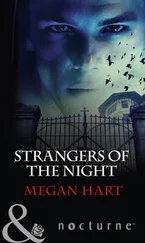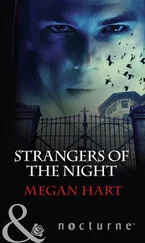Chris Bohjalian - The Night Strangers
Здесь есть возможность читать онлайн «Chris Bohjalian - The Night Strangers» весь текст электронной книги совершенно бесплатно (целиком полную версию без сокращений). В некоторых случаях можно слушать аудио, скачать через торрент в формате fb2 и присутствует краткое содержание. Жанр: Триллер, на английском языке. Описание произведения, (предисловие) а так же отзывы посетителей доступны на портале библиотеки ЛибКат.
- Название:The Night Strangers
- Автор:
- Жанр:
- Год:неизвестен
- ISBN:нет данных
- Рейтинг книги:5 / 5. Голосов: 1
-
Избранное:Добавить в избранное
- Отзывы:
-
Ваша оценка:
- 100
- 1
- 2
- 3
- 4
- 5
The Night Strangers: краткое содержание, описание и аннотация
Предлагаем к чтению аннотацию, описание, краткое содержание или предисловие (зависит от того, что написал сам автор книги «The Night Strangers»). Если вы не нашли необходимую информацию о книге — напишите в комментариях, мы постараемся отыскать её.
The Night Strangers — читать онлайн бесплатно полную книгу (весь текст) целиком
Ниже представлен текст книги, разбитый по страницам. Система сохранения места последней прочитанной страницы, позволяет с удобством читать онлайн бесплатно книгу «The Night Strangers», без необходимости каждый раз заново искать на чём Вы остановились. Поставьте закладку, и сможете в любой момент перейти на страницу, на которой закончили чтение.
Интервал:
Закладка:
Y ou could tell your wife about the bone. Bones, actually. When you dug around in the dirt a little more, you found three bullet-size phalanges that you are quite sure came from a human hand. A human finger.
Perhaps you even should tell your wife about the bones. But you don’t. You did not tell her yesterday when she came home from work and you will not tell her when she and the girls return from dance class this morning. And while you could devise any number of reasonable excuses for withholding the discovery-Emily is a little depressed, Emily already has a basket case of a husband, Emily is questioning her decision to bring the family north to New Hampshire-the main reason is essentially this: You have a macabre fascination with the bones. This house is brimming with strangeness and purposeful surprises. You want to investigate this on your own. See what it means. Talk to Hewitt Dunmore yourself.
Besides, why scare Emily? She was disturbed enough by the crowbar, the knife, and the ax. Why risk agitating her-and, thus, the girls? Because when Emily is anxious, the girls are anxious. That’s just how it is.
And so you wrap the long bone in sheets of newspaper (the Philadelphia Inquirer, the same pages that days ago pillowed the china plates that had come into your life in the weeks and months after your wedding) and place it upright in the very back of your mahogany armoire. It reminds you of the way that crowbar had been leaned up-hidden-in a corner of a closet in another bedroom. You place the pieces of fingers in a Ziploc bag beside it.
You find yourself smiling a little ruefully when you shut the armoire door. Perhaps you are more like Parnell or Tansy or Hewitt Dunmore than you realized. You hide things.
At some point soon, however, perhaps even this afternoon, Emily is going to go downstairs to the basement, and there she will see that you have torn down that door. She will see that the coal has been moved and the door is in ruins. And so you decide you will tell her about that part of your little project. You will tell her when she gets back from the dance studio with your girls. You will say you initiated this small home improvement this morning. Not yesterday. Today. After all, if she thinks you took care of the door yesterday and chose not to tell her until now, she might ask questions. And, before you know it, you might reveal that you have found some bones. Or, worse, that you may have reconnected with a dead girl with a Dora the Explorer backpack.
O n Saturday afternoon, the sun trying and failing to burn off the high overhead quilt of oyster white cirrus, Reseda misted the hypnobium, epazote, and derangia in her greenhouse. Then she gazed for a long moment at the arnica, appraising the plants. They looked like daisies, but the flowers were an orange just a tad more vibrant than terra-cotta. They smelled slightly like sage. On Monday she would harvest the arnica for a tincture. Most people only used arnica externally as an anti-inflammatory. They rubbed it on sprains and strains. They feared its toxicity when taken internally: A large enough dose was lethal. And while Reseda knew that you could kill a person with arnica, the truth was you could kill a person with plenty of medicines if you overdid it. Hence the word: overdose. She used a thousand times more arnica than the bare trace element you might find in a homemade homeopathic tincture or pill, but not enough, apparently, to ever have killed a person.
She wondered what she would prepare for the Lintons tomorrow night when they came to her house for dinner, and she put down her mister and wandered across the greenhouse to the section with the herbs she used in cooking. She noted how healthy the rosemary looked and inhaled its fragrance. Lamb, she decided that moment. Yes: She would serve lamb.
She recalled the way Captain Linton’s mind had roamed among shadows when he dropped by her office, how he seemed to be living now only in gloaming. She understood; she had her own trauma. She had had her own extended moments with the dead. His depression and disorientation were products of the accident, and with a little luck and the right counsel he would recover and resume a safer path. She found it significant that she was most attracted to the stories of the captain and his wife, while Anise and the other women were obsessed only with their girls.
She paused when she felt a prickling at the outer edge of her aura and stood perfectly still. She hadn’t imagined it. Consequently, she stepped over the shin-high stone statue of the amphisbaena, careful not to trip over either of the serpent’s heads (in myth, amphisbaena meat was an aphrodisiac; its skin could cure colds), passed by her Baphomet, and knelt. She peeled off her gardening gloves and spread wide her fingers, stretching her arms and straightening her spine. She stared up through the glass at the nimbus of light in the hazy western sky, closed her eyes, and randomly said aloud names of the living as if they were parts of a mantra or prayer. In a moment, whatever-whoever-was trying to cloud her aura was gone.
It was a source of unending interest to her: How could she-given all that she knew and all that she had endured-be so attuned to the thoughts of the living and so mystified by the thoughts of the dead?
T hey were only on the interstate for two exits on Saturday night, but they passed a pair of signs warning drivers of moose. One advised urgently, Brake for Moose: It may save your life. The first time Chip had seen that one, the day after they’d moved to Bethel, he’d remarked, “I suppose they’re afraid most people will accelerate when they see a moose. Look, honey, there’s a moose on the road: Let’s speed up and see if we can hit it!” He didn’t joke much these days, and so it always comforted Emily when she saw a glimpse of his humor. It was difficult to recall now, but before the accident he had actually been a rather funny man.
The Hardins’ house in Littleton was a white Federal that resided with princely elegance in the town’s hill section above the main street. The driveway had a circular portico and the front yard a stone fountain, the basin of which, because it was winter, had been removed and placed against the pedestal like a giant mushroom cap so the water pooling inside didn’t freeze and crack it. There was another car in the driveway, and Emily suspected by the way the front windshield had been defrosted that this vehicle was a recent arrival, too, and not one of the Hardins’ automobiles.
“There will be other people,” she said to neither Chip nor the girls in particular as they stood for a moment in the driveway. She found herself worrying for her husband. Worrying about her husband. It seemed that morning he had taken an ax and destroyed that squat, ugly door in the basement. The exertion had left him exhausted, though Emily was troubled more by the fury he had brought to the task: Why in the world had he used an ax instead of simply removing the carriage bolts from one side and then prying the door open with a crowbar? He had told her there were too many bolts and they were too long: Removing even a third of them would have taken hours. She took him at his word, but she couldn’t help but fear it was the fact that there were precisely thirty-nine of them that had prevented him. He had seemed unduly disturbed by the coincidence, the notion that there was one bolt for every fatality-as if each length of metal corresponded exactly with one human soul. One night over dinner he had expressed his wonderment at the connection, and she had smiled and told him this was magical thinking, a symptom of an obsessive-compulsive disorder. He, in turn, had told her that magical thinking was also a symptom of depression and there was something enigmatic in his response: Was he signaling to her that he knew she had demons, too, and to allow him this indulgence? Or was he alerting her to the idea that she was right and he had done a little Web diagnosis on himself and understood that his consideration of the bolts was at once irrational and explicable?
Читать дальшеИнтервал:
Закладка:
Похожие книги на «The Night Strangers»
Представляем Вашему вниманию похожие книги на «The Night Strangers» списком для выбора. Мы отобрали схожую по названию и смыслу литературу в надежде предоставить читателям больше вариантов отыскать новые, интересные, ещё непрочитанные произведения.
Обсуждение, отзывы о книге «The Night Strangers» и просто собственные мнения читателей. Оставьте ваши комментарии, напишите, что Вы думаете о произведении, его смысле или главных героях. Укажите что конкретно понравилось, а что нет, и почему Вы так считаете.











